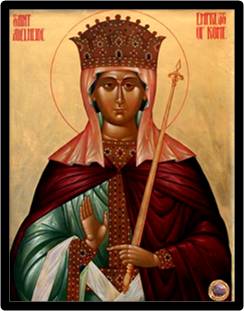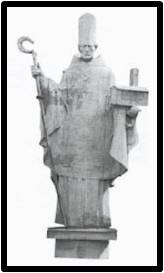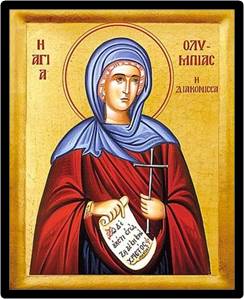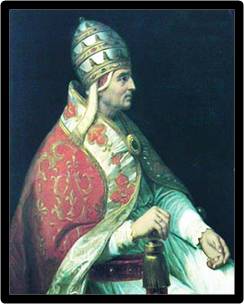DECEMBER 16 - ST. ADELAIDE

St. Adelaide was born at Burgundy in France. She was the daughter of King Rudolf II of Upper Burgundy. When she was two years old she was promised in an arranged marriage as part of a peace agreement between Rudolf and Huge of Provence.
At the age of sixteen, this Burgundian princess was married to King Lothair of Italy. Then three years later, her husband died. His successor Berengarius poisoned him so he could be king.
To strengthen his position he tried to get Adelaide to be his wife but she absolutely refused. In anger, he treated her with great cruelty. He even locked her up in a castle on a lake.
Adelaide was saved when King Otto the Great of Germany defeated Berengarius. Although she was twenty years younger than he, Otto married the lovely Adelaide on Christmas Day.
When he took his new queen back home, the German people loved her at once. She was as gentle and gracious as she was pretty. God sent five children to the royal couple. They lived happily for twenty-two years.
When Otto died, Adelaide's oldest son became the ruler. This son, Otto the Second, was good, but acted too quickly without thinking. He turned against his own mother and she left the palace.
In her great sorrow, she went to the abbot, St. Majolus for help. He advised Otto of his mistake and Otto felt sorry for what he had done.
Adelaide met her son in Italy and the king begged her forgiveness. She in turn prayed for her son, sending offerings to the great shrine of St. Martin of Tours.
In her old age, St. Adelaide was asked to rule the country while her grandson Otto III was still a child.
Although she never became a nun, she started many monasteries and convents and worked to convert the Slavic people. All her life, this saintly empress had obeyed the advice of holy people.
She was always willing to forgive those who had hurt her. St. Addle of Cluny called her a "marvel of beauty and grace."
When Otto III was old enough, Adelaide retired to the convent of Selta near Cologne where she spent the rest of her days in prayer. She died on December 16, 999.



